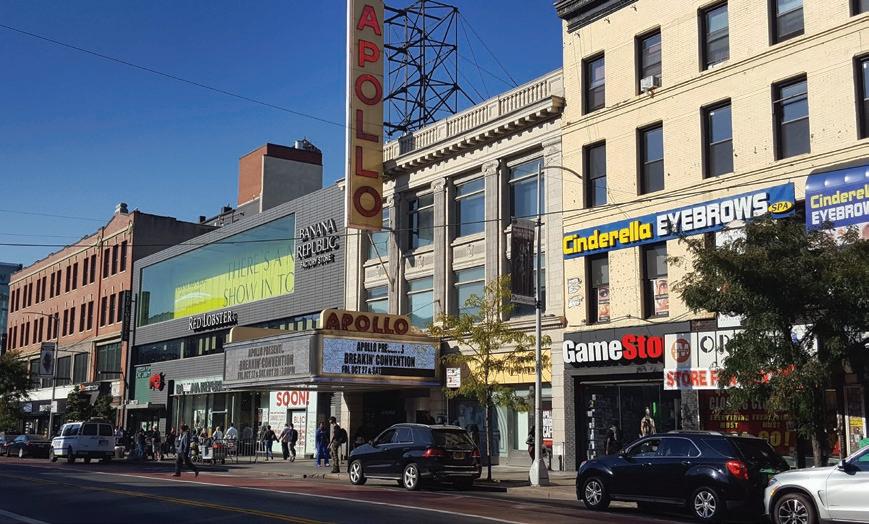
9 minute read
Taste of Osher
No membership required. These two-hour seminars provide a "taste" of the programming we offer throughout the year. Taste of Osher courses are open to non-members and members alike, and are just $15 each. OLLI Plus members can enroll at no cost. No refunds allowed.
{All our Taste of Osher offerings this winter are new courses!}
Beyond Alzheimer's: The Other Types of Dementia
Friday, 10am–12pm, January 20 Dementia is a chronic condition affecting memory, thinking, and social abilities severely enough to impair daily life. The Alzheimer’s Association states that more than six million Americans ages 65 or older have dementia. While Alzheimer’s disease is the most common form of dementia, it is not the only kind. In this presentation, we will discuss other forms of dementia, such as vascular dementia, Lewy body dementia, and frontotemporal dementia; and how they differ from Alzheimer’s in progression, treatment, and diagnosis. This course will be recorded. Students will have access to the video for 30 days. REG# 389826 | INSTRUCTOR: Monica Moore REMOTE: Zoom information is emailed to students two days before the course begins.
Lois Weber, Mother of American Cinema
Saturday, 10am–12pm, February 4 Lois Weber was one of America’s first auteurs and the most powerful woman in mid1910s Hollywood. As the highest paid director and Universal Film Manufacturing Company’s premiere director, Weber was the first woman to direct a feature-length film in the United States, and the first American woman to own her own studio. In this course, we examine Weber’s place in American cinema and her impact on the Hollywood film industry. We also look at her life as an evangelist and then a stage actress, how she brought respectability to early American cinema, and produced commercially successful, socially conscious films filled with technical sophistication.
REG# 389211 | INSTRUCTOR: Mary Mallory IN-PERSON: UCLA Extension Lindbrook Center, 10920 Lindbrook Dr, Room 215
Moms Mabley
Wednesday, 10am–12pm, February 22 Moms Mabley's career spanned 60 years from 1915 to 1975. She was a superstar in the Chitlin Circuit, including opening for Cab Calloway at the Apollo Theater in Harlem in the 1930s and making several films for an African American audience. However, she was unknown to a wider audience until the 1960s when she appeared on The Smothers Brothers Comedy Hour and The Ed Sullivan Show. In this course, we examine Moms Mabley, the person, as well as Moms Mabley, the unique character created by the African American comedian. We also examine her role in the civil rights movement of the 1960s and 70s.
This course will be recorded. Students will have access to the video for 30 days. REG# 389646 | INSTRUCTOR: Martin Marshall REMOTE: Zoom information is emailed to students two days before the course begins.

Richard Pryor
Thursday, 10am–12pm, February 23 Richard Pryor's comedy evolved from Bill Cosby–like general commentary on the human condition in the mid-60s to unbridled analysis of the roles of black people in America. Having been thrown out of the Las Vegas casino scene in 1967 for his revelations and wild behavior, he reemerged in the 1970s through LP records to go on to costar in nine films with Gene Wilder. In this course, we examine Pryor’s life and career, and take a look at his roles in films including: Sliver Streak, Car Wash, Lady Sings the Blues, Stir Crazy, and Blazing Saddles. Along the way, we also discuss his comedic techniques of storytelling. This course will be recorded. Students will have access to the video for 30 days. REG# 389770 | INSTRUCTOR: Martin Marshall REMOTE: Zoom information is emailed to students two days before the course
The Paradox of Genius
Thursday, 6:30–8:30pm, March 2 Aristotle said that no great genius has existed without a strain of madness. History suggests that a variety of mental disorders or emotional challenges may accompany that elevated level of vision and intellect, conferring both a blessing and a burden upon the geniuses among us. The Mona Lisa and the theory of evolution might have stemmed from this same complex process. It may not be a surprise that Tesla and Van Gogh were tortured and Einstein was eccentric, but Isaac Newton, Michelangelo and Alan Turing were more than just peculiar. In this course, we explore the lives and works of these individuals and others who have been able to see things differently and who demonstrate an exuberance of inquiry, as we define the very idea of what a genius actually is. Our focus is on men and women in science, but also includes masterminds in the arts, as we attempt to determine if there really is a paradox of genius, or if the mad scientist is merely a figment of Hollywood moviemaking. No background in science is required, just curiosity and a desire to stimulate your mind. This course will be recorded. Students will have access to the video for 30 days. REG# 389633 | INSTRUCTOR: Marc Olevin REMOTE: Zoom information is emailed to students two days before the course begins.

Women Artists of the Renaissance and Baroque
Monday, 1–3pm, March 6 Working in a male-dominated profession, women artists during the Renaissance and Baroque periods faced social as well as artistic challenges in their expressions of creativity. We explore the work of women such as Artemesia Gentileschi, an Italian Baroque painter who was considered among the most accomplished 17th-century artists; Sofonisba Anguissola, an Italian Renaissance painter; Lavinia Fontana, a Bolognese Mannerist painter; and Maria Sibylla Merian, a German-born Swiss naturalist and scientific illustrator who was one of the earliest European naturalists to observe insects directly. Each of these remarkable artists eventually rose to prominence and acquired supportive patrons, and the legacy of their lives and art subsequently paved the way for other women artists. Through lecture and slide illustrations, we explore their lives and remarkable works of art, which reflected the issues and artistic sensibilities of the times in which they lived. This course will be recorded. Students will have access to the video for 30 days. REG# 389212 | INSTRUCTOR: Eleanor Schrader REMOTE: Zoom information is emailed to students two days before the course begins.
Hypatia: The Life, Murder, and Legacy of the Female Philosopher
Wednesday, 10am–12pm, March 8 The philosopher Hypatia (355–415 AD) founded her own school of philosophy in the great city of Alexandria and taught many male students philosophy, mathematics, and astronomy. Although she was a pagan living in a majority Christian city, Hypatia had such personal integrity that she became an advisor to the Christian Roman governors of Egypt, helping them to set policy and respond to political and religious unrest in the province. Despite her stellar reputation in Alexandria, Hypatia was killed by a Christian mob in the year 415. Her murder was so shocking that the achievements in her life were quickly overshadowed by the horror of her death. In this course, we explore Hypatia's story in a way that explains how her work, career, and actions all reflect a woman who was deeply engaged in public life on terms that she set for herself.
This course will be recorded. Students will have access to the video for 30 days. REG# 389588 | INSTRUCTOR: Edward Watts FEE: Free for all; registration required. REMOTE: Zoom information is emailed to students two days before the course begins.

Cognitive Changes in Older Age
Monday, 1–3pm, March 13 Many cognitive changes occur during healthy aging, including a general slowing of thinking processes and struggling to remember certain types of information. However, older adults are often seen as wiser and better at decision-making. In this course, we review psychological theories of healthy cognitive aging as well as evidence for these theories that highlight the adaptive ways that cognition changes across the lifespan. Concepts covered include cognitive biases, interest and curiosity, and memory selectivity. This course will be recorded. Students will have access to the video for 30 days. REG# 389272 | INSTRUCTOR: Mary Whatley REMOTE: Zoom information is emailed to students two days before the course begins.
Dancers, Washers, and Horses: The Revolutionary Art of Edgar Degas
Tuesday, 1–3pm, March 14 As one of the leading figures in the Impressionist movement, Edgar Degas’s art looks a little different than the art of Monet and Renoir. More emotional and set indoors, Degas’s paintings have a psychological element in their scenes of contemporary life. From ballet dancers to laundresses and horse races, this course explores his unique oeuvre of work.
This course will be recorded. Students will have access to the video for 30 days. REG# 389832 | INSTRUCTOR: Katherine Zoraster REMOTE: Zoom information is emailed to students two days before the course begins.

Sharon's Salon: The Making of an Opera
Thursday, 10am–12pm, March 23 It took award-winning classical-music composer Sheila Silver nearly 10 years to create an opera of A Thousand Splendid Suns, based on the bestselling novel by Afghan-American author Khaled Hosseini, who also wrote The Kite Runner. In February 2023, the Seattle Opera will present the opera’s world premiere. In this interview, we meet the opera’s composer Sheila Silver, librettist Stephen Kitsakos, and stage director Roya Sadat, to explore the process that brought this opera to life. Among the challenges was securing Ms. Sadat, an Afghan filmmaker named one of BBC’s “100 Women for 2021,” for the position. She was fortunate to be in the U.S. editing one of her films when the Taliban seized control of Afghanistan in 2021 and confiscated her home and business. We show clips from the Seattle Opera world premiere production. This course will be recorded. Students will have access to the video for 30 days. REG# 390157 | INSTRUCTOR: Sharon Boorstin REMOTE: Zoom information is emailed to students two days before the course begins.
Hollywood's Golden Age: The 1930s in Los Angeles
Friday, 10am–12pm, March 24 The stock market crash in 1929 ushered in the Great Depression of the 1930s. The U.S. economy tanked, but that didn’t stop Hollywood. The major movie studios churned out everything from screwball comedies and westerns to extravagant musicals, and fans paid 25 cents each to escape their troubles in front of the big screen. In this course, we explore—and see clips of—some of this decade's greatest films. We also look beyond Hollywood to other aspects of the 1930s that impacted Angelenos. They include the growth of the Hispanic minority, the corruption in City Hall that led to the recall of Mayor Frank Shaw, and the fashions, food, and fads that caught the public’s attention.
This course will be recorded. Students will have access to the video for 30 days. REG# 389799 | INSTRUCTOR: Sharon Boorstin REMOTE: Zoom information is emailed to students two days before the course begins.






